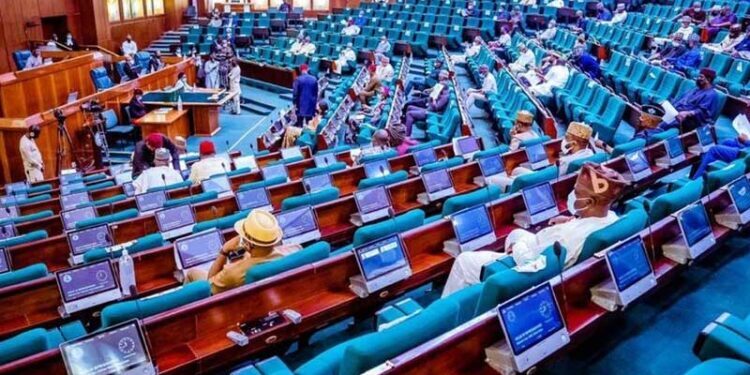The House of Representatives Committee on Nutrition and Food Security has initiated an inquiry into the allocation of N1.12 trillion under the Anchor Borrowers Programme (ABP).
The investigation also encompasses the distribution of N215 billion by NIRSAL Microfinance Bank for agribusiness initiatives, alongside N3 billion released by the Bank of Industry to support 22,120 smallholder farmers via the Agricultural Value Chain Financing scheme.
During a recent hearing, committee chairman Hon. Chike Okafor expressed concerns over alleged mismanagement of agricultural and food security funds by various federal departments and agencies. Okafor noted that while 24 participating financial institutions (PFIs) were tasked with disbursing ABP funds, only evidence from nine institutions had been uncovered.
He highlighted the committee’s essential role in monitoring the implementation of food security and nutrition intervention programmes by relevant government bodies. Okafor remarked, “We are examining how the Central Bank of Nigeria (CBN) disbursed around N1.12 trillion to 4.67 million farmers growing maize, rice, or wheat through 563 anchor firms.”
Despite the engagement of 24 PFIs in managing the funds, documentation from only nine institutions was available for review. Some PFIs have sought to collaborate with the committee.
Additionally, Okafor pointed out that the committee is investigating how NIRSAL allocated over N215 billion for agricultural ventures and the distribution of N3 billion by the Bank of Industry to over 22,000 smallholder farmers under the agricultural value chain initiative.
Reiterating the committee’s oversight responsibilities, Okafor affirmed their duty to ensure the effective implementation of intervention programmes, scrutinise fund allocation, draft new legislation, and improve existing laws relating to nutrition and food security.
He stressed that nutrition and food security are interconnected and remain crucial priorities within the current administration’s Renewed Hope agenda. The committee’s formation reflects a legislative dedication to collaborate with the executive and other stakeholders to achieve a well-nourished and food-secure Nigeria.
During the hearing, Charles Bassey, representing NIRSAL Microfinance Bank, identified security challenges as a significant barrier to the effective execution of their loan scheme. Bassey explained that while the bank adhered to established guidelines in identifying eligible beneficiaries, insecurity—particularly attacks from bandits and herders—has hindered many farmers from returning to their fields after investing funds, impacting harvests and seasonal agricultural activities.
He noted that environmental factors, such as flooding and drought, had also affected some farmers, prompting requests for loan restructuring to allow for extended repayment periods.
Olushola Obikanye, Group Head of Agric Finance and Solid Minerals at Sterling Bank, reported that the bank had fully returned N113.49 billion to the Central Bank of Nigeria (CBN), encompassing both disbursed and undisbursed funds. He confirmed that Sterling Bank has no outstanding liabilities under the Anchor Borrowers Programme, stating, “We have a balance of zero-naira, zero-kobo owed under this scheme.”











